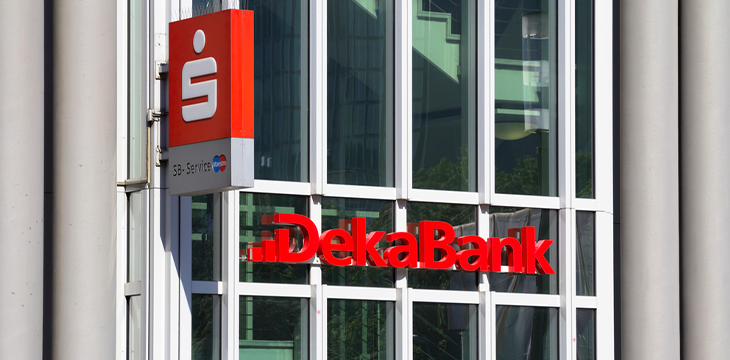|
Getting your Trinity Audio player ready...
|
German banking conglomerate DekaBank has issued a digital bond as part of the European Central Bank’s wholesale digital euro trial.
The bond, which DekaBank described as a ‘crypto security,’ was issued on SWIAT, its institutional blockchain network. SWIAT now boasts 24 clients, with Standard Chartered’s (NASDAQ: SCBFF) SC Ventures and Germany’s largest state-backed regional lender LBBW as founding members.
While DekaBank withheld most of the details of the digital bond, it revealed that Frankfurt-based private bank Bankhaus Metzler was the buyer and used wholesale digital euro to pay as part of the ECB’s DLT trials.
The transaction leveraged the digital euro Trigger Solution developed by the German central bank. This DLT-based trigger solution allows banking industry players to integrate digital euro payments without upgrading their existing systems and networks.
In DekaBank’s case, SWIAT integrated into the Trigger Solution to prompt settlement for the payment in central bank money. The use of DLT guarantees finality through delivery versus payment transactions.
DLT enabled the issuance of the digital bond without the involvement of a central securities depository or any other intermediary. According to Silvio Lenk, the head of treasury at DekaBank, this could be a game-changer.
“Blockchain-based securities transactions can be carried out faster and more transparently than the classic settlement infrastructure,” he commented.
“Payment transactions with digital central bank money are essential for this and close the previous gap. The ECB’s step to offer solutions here will enable further development of this market. For us, it is a must to participate in this.”
A week ago, DekaBank became one of the first two clients to issue digital bonds on Deutsche Börse’s DLT securities platform. Known as D7, it was established three years ago and has processed billions of dollars in securities transactions. However, Deutsche Börse securities settlement subsidiary Clearstream has limited these transactions to its centralized infrastructure.
DekaBank issued a €5 million ($5.4 million) bond, and DZ Bank, Germany’s second-largest bank, issued a similar bond. Like in the latest case, the two bonds were settled through the Bundesbank’s Trigger Solution, and the payments were made in digital central bank money.
DekaBank’s Lenk stated then that the Trigger Solution’s delivery versus payment was superior to any existing technology.
“As issuers, banks benefit from the speed, scalability and security of the new technology,” he stated.
Digital bonds became possible in Germany in 2021 after the passing of the Electronic Securities Act (eWpG). The law allowed German firms to cease using physical certificates when issuing securities, paving the way for tokenized securities.
DekaBank has become an essential player in the post-paper securities industry, ranking in the top five largest electronic security registrars.
Watch: Creating value on a scalable blockchain

 02-28-2026
02-28-2026 




